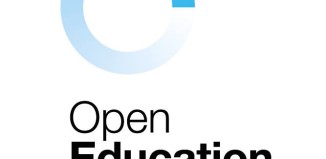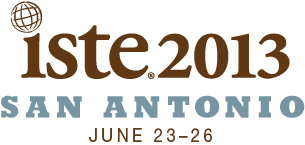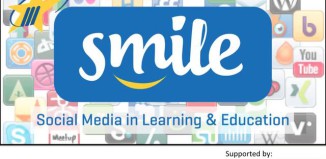Facilitators
Top 100 #startup tools from #websummit who offer gateway through knowledge and can disrupt #socialmedia world
Dear friends and my blog readers as you already know I want to implement Curation Restart Education Project ; like facebook page https://www.facebook.com/CurationRestartEducationProject and if you like my project and want to collaborate, help...
#mooc next step in distance #education , Top 20 @Iversity Online Courses to enroll now Free
#mooc Education Free for everyone.Top 20 @Iversity Online Courses to enroll now:10-english,10-german via @LucianeCuratorView more lists from LucianCurator Lucian Duma
Top 20 #startup tools for #connectededucators to organize awesome web conferencing on #ce13
Dear friends, teachers, researchers, social media curators and students like I told you before I will share weekly in my blog here TOP 20 and mounthly TOP 100 and I recommand to read https://lucianecurator.contently.com/ previous blog post Top 100 edtools rediscovered through #iste13 http://bitly.com/iste13edtools
Also in my previous post here I write about Nellie Kroes new initiative #startupeurope and http://www.openeducationeuropa.eu/ part of #connectedcontinent . Now because it's Connected Educator Mounth #CE13 I want to give everyone the possibility to share my favorite tools in their blogs or website using embeded code and for this reason I will share them using list.ly . 
The Connected Educators initiative’s mission is to help educators thrive in a connected world. Such environments are envisioned in the 2010 National Educational Technology Plan and are soon to become the norm due to efforts such as ConnectED. Connected Educators pursues this mission through seeking to understand and promote educators learning and collaborating through online communities of practice and social networks. That pursuit combines research, development, and outreach:
Research – Through studying existing communities and networks, we ask questions such as
How does participation produce value?
How can schools and districts as well as individuals benefit?
What design and facilitation strategies maximize that value?
How can learning analytics using data generated through participation help improve the use of those strategies?
Development – Through designing and leading networked learning spaces for educators—such as theCS10K community that supports the National Science Foundation’s efforts to broaden participation in computing careers—we test the results of research in our own practice.
Outreach – Through Connected Educator Month and project publications, we raise awareness of and engagement in learning and collaboration through communities and networks. Over the last three years, they reached hundreds of organizations and hundreds of thousands of educators and this year more than 200 organizations, companies, and communities have already signed up http://connectededucators.org/cem-2013-participating-organizations/ and they organize more than 300 events worldwide http://connectededucators.org/events/
Also if you want to connect with teachers worlwide join http://edconnectr.connectededucators.org/# and also if you want to organize a online event next 20 web conferencing tools can help you .
Top 10 web conferencing tools by @LucianeCurator for #backtoschool
What tool / app you like more and why . Please leave a comment after you see full list .You can also add a comment related to your favorite edtool .View more lists from LucianCurator Lucian Duma
Big #connectedcontinent & #startupeurope announcemet by @NeelieKroesEU : welcome @OpenEduEu adio #elearningeuropainfo
1 week ago I read here a announcement about new portal http://www.openeducationeuropa.eu/ . I was verry excited to read the annoncement because 4 years ago I registered here to collaborate with eLearning experts like you can see http://elearningeuropa.info/en/users/dumacornellucian
and still today I want to collaborate also with social media curators, teachers and researchers on the new ePortal http://www.openeducationeuropa.eu/en/users/dumacornellucian .
Do you like the new portal, leave a comment after you read my post because today European Commission launches 'Opening up Education' to boost innovation and digital skills in schools and universities .
More than 60% of nine year olds in the EU are in schools which are still not digitally equipped. The European Commission today unveils 'Opening up Education', an action plan to tackle this and other digital problems which are hampering schools and universities from delivering high quality education and the digital skills which 90% of jobs will require by 2020. To help kick-off the initiative, the Commission today launches a new website, Open Education Europa, which will allow students, practitioners and educational institutions to share free-to-use open educational resources.
 Between 50% and 80% of students in EU countries never use digital textbooks, exercise software, broadcasts/podcasts, simulations or learning games. Most teachers at primary and secondary level do not consider themselves as 'digitally confident' or able to teach digital skills effectively, and 70% would like more training in using ICTs. Pupils in Latvia, Lithuania and the Czech Republic are the most likely to have internet access at school (more than 90%), twice as much as in Greece and Croatia (around 45%).The European Commission launched Open Education Europa in September 2013 as part of the Opening Up Education initiative to provide a single gateway to European OER. This portal is grounded on the basis of the elearningeuropa.info portal, active since 2002 to support the transformation of education through technology. Today, with close to 38,000 registered users and an average of 55,000 monthly visits, it has become the meeting point for exploring change and innovation in education.
Between 50% and 80% of students in EU countries never use digital textbooks, exercise software, broadcasts/podcasts, simulations or learning games. Most teachers at primary and secondary level do not consider themselves as 'digitally confident' or able to teach digital skills effectively, and 70% would like more training in using ICTs. Pupils in Latvia, Lithuania and the Czech Republic are the most likely to have internet access at school (more than 90%), twice as much as in Greece and Croatia (around 45%).The European Commission launched Open Education Europa in September 2013 as part of the Opening Up Education initiative to provide a single gateway to European OER. This portal is grounded on the basis of the elearningeuropa.info portal, active since 2002 to support the transformation of education through technology. Today, with close to 38,000 registered users and an average of 55,000 monthly visits, it has become the meeting point for exploring change and innovation in education.
The main goal of the Open Education Europa portal is to offer access to all existing European Open Educational Resources in different languages in order to be able to present them to learners, teachers and researchers.Open Education Europa is a dynamic platform built with the latest cutting-edge open-source technology, offering tools for communicating, sharing and discussing. The portal has many features and it is structured in 3 main sections:
• The FIND section showcases MOOCs, courses, and Open Educational Resources by leading European institutions. Each institution is also featured in this section alongside the MOOCs, courses, and the Open Educational Resources it provides.
• The SHARE section is the space where portal users (scholars, educators, policymakers, students and other stakeholders) come together to share and discuss solutions for a diverse range of educational issues by posting blogs, sharing events, and engaging in thematic discussions.
• The IN-DEPTH section hosts eLearning Papers — the world’s most visited e-journal on open education and new technologies —, provides an exhaustive list of EU-funded projects, and highlights the latest news about open education as well as the most relevant recently published scholarly articles.
Nellie Kroes , European Comission Vice-President launch also this week #connectedcontinent Initiative after she launched the official website of #startupeurope http://www.startupeuropehq.eu as a part of Digital Agenda for Europe and you can read her speech here .

The main goal of the Open Education Europa portal is to offer access to all existing European Open Educational Resources in different languages in order to be able to present them to learners, teachers and researchers.Open Education Europa is a dynamic platform built with the latest cutting-edge open-source technology, offering tools for communicating, sharing and discussing. The portal has many features and it is structured in 3 main sections:
• The FIND section showcases MOOCs, courses, and Open Educational Resources by leading European institutions. Each institution is also featured in this section alongside the MOOCs, courses, and the Open Educational Resources it provides.
• The SHARE section is the space where portal users (scholars, educators, policymakers, students and other stakeholders) come together to share and discuss solutions for a diverse range of educational issues by posting blogs, sharing events, and engaging in thematic discussions.
• The IN-DEPTH section hosts eLearning Papers — the world’s most visited e-journal on open education and new technologies —, provides an exhaustive list of EU-funded projects, and highlights the latest news about open education as well as the most relevant recently published scholarly articles.
| Follow @se_hq |
Don't forget to visit weekly my blog to discover top 20 edtools .
References :
Open Education Europa Official Website European Comission , Nellie Kroes Connectedcontinent Speech
New website #StartupEurope
My favorite Top 20 + ipad apps to #mlearning disovered through #tcdisrupt
Dear friends like I promise you in my previous post here where I describe Top 100 edtools and ipad apps to mLearning rediscovered through #iste13 http://bitly.com/iste13edtools , now when we back to school I will share weekly when I have time TOP 20 wi...
Fall 2013: Let the wild rumpus start
Always excited and anxious at the beginning of a new semester. Enjoyed meeting students yesterday in Literacy Studies and Academic Writing, and turning to research in the Scientific Inquiry course. Living the dream… Here are some resources I’m finding particularly interesting as we begin the new semester: Mark Sample’s Introduction …
#iste best #edtech global edconference . Top 100 + #edtools and #ipad apps to #mlearning discovered through #iste13
Dear friends like I told you in my previous post here http://bitly.com/myreflectionsinSMILEProject when I was Cop 2 Leader in Smile Project managed by European Schoolnet I will share weekly top 20 and montly Top 100 here in my blog
Between 23 and 26 june in San Antonio is organized ISTE’s Annual Conference and Exposition who provides four days of inspiration, learning and networking with more than 700 sessions and interactive learning environments. If you have a ipad or a mobile device you can usee free the conference app who is is your ISTE 2013 command center, available in the Apple App Store, on Google Play, Windows Phone, Windows 8 and via the mobile web . Using #iste13 hastag I rediscovered many edtools and for this reason I decided to share with you this list 101 edtools and ipad apps to mLearning ( every day I add new 25 tools to the list ) and in 27 june you can see here more than 100 . I want through this list to show you the power of Curation, Social Media King and why I want to implement a platform for Curation Restart Online Education Project where teachers worldwide can collaborate and share using new online technologies for free . If my Curation project seems interesting for you and you want to help me to launch the project website and also if you want to collaboate read more here http://krunchd.com/CredProject ; follow https://twitter.com/web20education ; like https://www.facebook.com/CurationRestartEducationProject Join https://plus.google.com/communities/100188349857613823793 My dream is to present this project next year at #iste14
What tool / app you like more and why . Please leave a comment after you see full list .You can also add a comment related to your favorite edtool . I describe also daily startup edtools here http://startup4edu.blogspot.com , ipad apps here http://ipadappsineducationtomlearning.blogspot.ro/
I invite all of you to add favorite edtools in this padlet and I will add after to the list . First I share to the list my Top 10 social media curation tools for social learning in the workspace who will change research , I use most of these tools daily and also I add many Ipad apps to mLearning .

Between 23 and 26 june in San Antonio is organized ISTE’s Annual Conference and Exposition who provides four days of inspiration, learning and networking with more than 700 sessions and interactive learning environments. If you have a ipad or a mobile device you can usee free the conference app who is is your ISTE 2013 command center, available in the Apple App Store, on Google Play, Windows Phone, Windows 8 and via the mobile web . Using #iste13 hastag I rediscovered many edtools and for this reason I decided to share with you this list 101 edtools and ipad apps to mLearning ( every day I add new 25 tools to the list ) and in 27 june you can see here more than 100 . I want through this list to show you the power of Curation, Social Media King and why I want to implement a platform for Curation Restart Online Education Project where teachers worldwide can collaborate and share using new online technologies for free . If my Curation project seems interesting for you and you want to help me to launch the project website and also if you want to collaboate read more here http://krunchd.com/CredProject ; follow https://twitter.com/web20education ; like https://www.facebook.com/CurationRestartEducationProject Join https://plus.google.com/communities/100188349857613823793 My dream is to present this project next year at #iste14
What tool / app you like more and why . Please leave a comment after you see full list .You can also add a comment related to your favorite edtool . I describe also daily startup edtools here http://startup4edu.blogspot.com , ipad apps here http://ipadappsineducationtomlearning.blogspot.ro/
I invite all of you to add favorite edtools in this padlet and I will add after to the list . First I share to the list my Top 10 social media curation tools for social learning in the workspace who will change research , I use most of these tools daily and also I add many Ipad apps to mLearning .
More than 100 #edtools and #ipad apps to #mlearning discovered from #iste13 by @web20education
View more lists from Curation Project
I am honored to share with you official digital habdbook and my reflections after I was COP2 Leader in SMILE project managed by @eu_schoolnet
Ollie Bray, our brilliant trainer from Intel Teach Essentials training course in Prague http://bitly.com/prgessentials invite all participants to join also Social Media in Learning and Education Project managed by EUN . Janice Richardson, manager of the project said last year when the project start ,, SMILE aims to investigate these issues and, through, an online learning course and mentoring techniques, not only encourage the take-up of social media in schools but also to map best practice in order to foster the exchange of ideas and experience”
You can download official Smile Project handbook free from here
and after you read the publication leave your feed-back, and add a comment to this blog post . smile handbook
The main purpose of this SMILE digital publication ‘Challenges and opportunities for schools and teachers in a digital word - Lessons learned from the 2012 SMILE action research project’ is to provide guidelines and examples to teachers on how to adopt social media in a school environment. “We believe that the SMILE report truly provides manageable steps on how to exploit the potential of these tools for the benefit of learners, both at classroom and institutional levels, in a pedagogically sound manner,” says Janice Richardson, Senior Advisor at European Schoolnet.
The report also advocates a response to the important issue of online safety that seeks to move beyond a ‘lock and block’ mentality, to a mindset that prefers to use education itself to give young people (and teachers) the skills, the knowledge and the insight needed to be able to use the bewildering variety of tools on offer in ways that minimise risk.
“Nothing is more important to Facebook than the safety of the people that use our site. We think that online safety is a responsibility shared amongst parents, teachers, teens, policy makers and companies like Facebook. Because today’s kids are growing up in a new and different world, we believe that working with partners like these researchers is critical to learning more about ways that we can continue to improve our product. We strive to be as innovative when it comes to safety as we are in every other part of our business, and the Digital Citizenship Research Grants program is just one small part of our overall safety program. We will continue to create new safety programs to emphasise our ongoing commitment,” says Joe Sullivan, Chief Security Officer at Facebook, speaking of the research grants. This project has 3 parts :
1. An online learning laboratory for 100 teachers from the 30 member states of EUN partnership to investigate and embrace the educational opportunities social media offers and for this reason Ollie Bray, our trainer introduce all of us in the beautiful world of social media related to SMILE Community of Practices, presenting the 1st part of the project in 6 units . For each unit, he give us introductory video to view, along with a written commentary and additional sources of information. We have also a list of links to explore and reflect on, and examples of interesting practice taken from both the education sector and beyond. At the end of each unit we made a series of tasks to help us deepen understanding, and gain practical experience of many of the issues discussed,more here
Social Media in Learning and Education (SMILE) - Video 2 of 6 Using social media in schools - whole school approach. from Ollie Bray on Vimeo.
Still the begining I must told you that I like verry much this project and for this reason I was involved in the discussions in 1st part of the project on the Elearning Platform managed by EUN http://leedu.eun.org/web/smile/home and for my research https://lucianecurator.contently.com/ I was accepted to be COP2 leader in part 2 of the project .
2.Research with the 100 learning laboratory participants to highlight trends and best practices for how social media is being used and can be used in classrooms;
The SMILE ‘learning laboratory’ was organised around a number of Communities of Practice that allowed more than 100 teachers from across Europe and beyond to study some critical aspects of the use of social media in learning and education:
· Social media - what is it?
· Social media - school policies
· Social media - pedagogical principles
· Social media - professional development (CPD)
· Social media - internet safety and responsible use
· Social media - challenges to adoption
In XXI Century Education, the use of new online technologies ( social media and web 2.0 startup tools and apps ) aren't regarded like a avantgardist movement, but unfortunatelly although we have many free edtools most of the teachers still don't know or don't want to know how to integrate new online technologies into the classroom although in all the schools we have now computers connected to Internet . For this reason I accepted to be COP2 leader - Using Social Media in schools, whole-school approach . I had the opportunity to have Elena Radaelli from Italy my deputy leader who said after the project finished :
"The reason that led me to attend the on line splendid course SMILE was related to my professional and personal necessity to see if social media such as Facebook, that normally occupy a relevant part of my pupils' daily life outside school, could actually enter school and become an interesting didactical tool. I decided to start with an ad hoc Facebook group focused on our Comenius project to share ideas, jokes, and pictures to enrich the project. [..] I was amazed how fast and precise they were to react and do their homework. During all my teaching years, I had never seen such a prolific, lovely and creative production of assignments, nice jokes, provocations in plain English! So without even knowing it, they started using their first foreign language as a real communicative tool. They were totally involved in the learning process since they didn't perceive it as a burden but as part of their daily life."
3.Broad dissemination of results of the research through EUN’s interactive portals for teachers as well as through European and international meetings and conferences.
I continue to use social media like I told you in the online session . I focus on my COP2 when I continue to learn students to use social media in eTwinning projects and parteners ( teachers and students ) collaborate in the blog and facebook group https://www.facebook.com/groups/eSafety4eTwinners/ . Related to using using social media for professional development ( COP3 ) I present SMILE Project in 2 online conferences to a global audience http://www.docstoc.com/docs/136241127/ICT4eTwinners-project-Smile-Project-and-top-10-tools-to-build-a-PLN---Presentation-in-globaled12 and also http://www.slideshare.net/DUMACORNELLUCIAN/connecting-online-2013-conference-presenter-duma-cornel-lucian . I manage also https://www.facebook.com/groups/etwinningmentors/
I am honored to share with you official digital habdbook and my reflections after I was COP2 Leader in SMILE project managed by @eu_schoolnet
Ollie Bray, our brilliant trainer from Intel Teach Essentials training course in Prague http://bitly.com/prgessentials invite all participants to join also Social Media in Learning and Education Project managed by EUN . Janice Richardson, manager of the project said last year when the project start ,, SMILE aims to investigate these issues and, through, an online learning course and mentoring techniques, not only encourage the take-up of social media in schools but also to map best practice in order to foster the exchange of ideas and experience”
You can download official Smile Project handbook free from here
and after you read the publication leave your feed-back, and add a comment to this blog post . smile handbook
The main purpose of this SMILE digital publication ‘Challenges and opportunities for schools and teachers in a digital word - Lessons learned from the 2012 SMILE action research project’ is to provide guidelines and examples to teachers on how to adopt social media in a school environment. “We believe that the SMILE report truly provides manageable steps on how to exploit the potential of these tools for the benefit of learners, both at classroom and institutional levels, in a pedagogically sound manner,” says Janice Richardson, Senior Advisor at European Schoolnet.
The report also advocates a response to the important issue of online safety that seeks to move beyond a ‘lock and block’ mentality, to a mindset that prefers to use education itself to give young people (and teachers) the skills, the knowledge and the insight needed to be able to use the bewildering variety of tools on offer in ways that minimise risk.
“Nothing is more important to Facebook than the safety of the people that use our site. We think that online safety is a responsibility shared amongst parents, teachers, teens, policy makers and companies like Facebook. Because today’s kids are growing up in a new and different world, we believe that working with partners like these researchers is critical to learning more about ways that we can continue to improve our product. We strive to be as innovative when it comes to safety as we are in every other part of our business, and the Digital Citizenship Research Grants program is just one small part of our overall safety program. We will continue to create new safety programs to emphasise our ongoing commitment,” says Joe Sullivan, Chief Security Officer at Facebook, speaking of the research grants. This project has 3 parts :
1. An online learning laboratory for 100 teachers from the 30 member states of EUN partnership to investigate and embrace the educational opportunities social media offers and for this reason Ollie Bray, our trainer introduce all of us in the beautiful world of social media related to SMILE Community of Practices, presenting the 1st part of the project in 6 units . For each unit, he give us introductory video to view, along with a written commentary and additional sources of information. We have also a list of links to explore and reflect on, and examples of interesting practice taken from both the education sector and beyond. At the end of each unit we made a series of tasks to help us deepen understanding, and gain practical experience of many of the issues discussed,more here
Social Media in Learning and Education (SMILE) - Video 2 of 6 Using social media in schools - whole school approach. from Ollie Bray on Vimeo.
Still the begining I must told you that I like verry much this project and for this reason I was involved in the discussions in 1st part of the project on the Elearning Platform managed by EUN http://leedu.eun.org/web/smile/home and for my research https://lucianecurator.contently.com/ I was accepted to be COP2 leader in part 2 of the project .
2.Research with the 100 learning laboratory participants to highlight trends and best practices for how social media is being used and can be used in classrooms;
The SMILE ‘learning laboratory’ was organised around a number of Communities of Practice that allowed more than 100 teachers from across Europe and beyond to study some critical aspects of the use of social media in learning and education:
· Social media - what is it?
· Social media - school policies
· Social media - pedagogical principles
· Social media - professional development (CPD)
· Social media - internet safety and responsible use
· Social media - challenges to adoption
In XXI Century Education, the use of new online technologies ( social media and web 2.0 startup tools and apps ) aren't regarded like a avantgardist movement, but unfortunatelly although we have many free edtools most of the teachers still don't know or don't want to know how to integrate new online technologies into the classroom although in all the schools we have now computers connected to Internet . For this reason I accepted to be COP2 leader - Using Social Media in schools, whole-school approach . I had the opportunity to have Elena Radaelli from Italy my deputy leader who said after the project finished :
"The reason that led me to attend the on line splendid course SMILE was related to my professional and personal necessity to see if social media such as Facebook, that normally occupy a relevant part of my pupils' daily life outside school, could actually enter school and become an interesting didactical tool. I decided to start with an ad hoc Facebook group focused on our Comenius project to share ideas, jokes, and pictures to enrich the project. [..] I was amazed how fast and precise they were to react and do their homework. During all my teaching years, I had never seen such a prolific, lovely and creative production of assignments, nice jokes, provocations in plain English! So without even knowing it, they started using their first foreign language as a real communicative tool. They were totally involved in the learning process since they didn't perceive it as a burden but as part of their daily life."
3.Broad dissemination of results of the research through EUN’s interactive portals for teachers as well as through European and international meetings and conferences.
I continue to use social media like I told you in the online session . I focus on my COP2 when I continue to learn students to use social media in eTwinning projects and parteners ( teachers and students ) collaborate in the blog and facebook group https://www.facebook.com/groups/eSafety4eTwinners/ . Related to using using social media for professional development ( COP3 ) I present SMILE Project in 2 online conferences to a global audience http://www.docstoc.com/docs/136241127/ICT4eTwinners-project-Smile-Project-and-top-10-tools-to-build-a-PLN---Presentation-in-globaled12 and also http://www.slideshare.net/DUMACORNELLUCIAN/connecting-online-2013-conference-presenter-duma-cornel-lucian . I manage also https://www.facebook.com/groups/etwinningmentors/
Top 10 web tools #googlereader alternative to save favorite blogs
In my previous blog post I told you that I will share weekly top 10 using lists ( giving you all the opportunity to share my lists on your blog or website using embeded code ) and now I describe in 1st list my favorite reader tools . Dear f...
Top 10 web tools #googlereader alternative to save favorite blogs
In my previous blog post I told you that I will share weekly top 10 using lists ( giving you all the opportunity to share my lists on your blog or website using embeded code ) and now I describe in 1st list my favorite reader tools . Dear f...
Top 16 tools and apps in #leweb13 #startup competition . Se also live #leweb conference
Dear friends because google reader is shooting down in 1 july I want to write this week a blog post ,, Top 10 alternative for google reader " ,but because yestarday and today is organized a global online Teach Conference in London http://london.leweb.co/ I decided to wirte about Leweb startup competition .
I follow #leweb13 and discover many informations and I want to share with you all . First I want to tell you that I will write next week about top 10 Google Reader alternative, but still then I invite you to follow live Leweb and vote for your favorite startup .
My favorite #leweb13 EDTECH Startup is studemia . I tweet following #tcdisrupt and my favorite startup ENIGMA.IO WIN

My favorite #leweb13 EDTECH Startup is studemia . I tweet following #tcdisrupt and my favorite startup ENIGMA.IO WIN
I believe @enigma_io #socialmedia #startup will be the Big Winner in #tcdisrupt#edchat #elearning #cpchat #tlchat shrd.by/zT1Vnl
— #CURATION Project (@web20education) May 1, 2013
Top 16 tools and apps in #leweb13 #startup competition . Se also live #leweb conference
Dear friends because google reader is shooting down in 1 july I want to write this week a blog post ,, Top 10 alternative for google reader " ,but because yestarday and today is organized a global online Teach Conference in London http://london.leweb.co/ I decided to wirte about Leweb startup competition .
I follow #leweb13 and discover many informations and I want to share with you all . First I want to tell you that I will write next week about top 10 Google Reader alternative, but still then I invite you to follow live Leweb and vote for your favorite startup .
My favorite #leweb13 EDTECH Startup is studemia . I tweet following #tcdisrupt and my favorite startup ENIGMA.IO WIN

My favorite #leweb13 EDTECH Startup is studemia . I tweet following #tcdisrupt and my favorite startup ENIGMA.IO WIN
I believe @enigma_io #socialmedia #startup will be the Big Winner in #tcdisrupt#edchat #elearning #cpchat #tlchat shrd.by/zT1Vnl
— #CURATION Project (@web20education) May 1, 2013
The Geek-Boy Irony Behind Mark Zuckerberg’s Tech Lobby
Citing a critical shortage, Silicon Valley heavyweights have been lobbying for immigration reform that will allow high-tech firms to hire more workers under H-1B visas. How is this possible, given our glut of job-seeking college grads? One fundamental ...
Top 10 #startup tools / projects for teachers from #microsoft research fuse labs #edtech20 #pln
Dear friends Curation is Social Media King like I present here http://bitly.com/LucianeCuratorCO13Presentation , but like I promise you, after I was a FIE Finalist http://bitly.com/fie2012 I will describe here weekly if I will receive to my blog posts many comments and feed-back from my PLN , TOP 10 In my previous post I describe my favorite Top 10 tools in #startup #cloud app battle to keep safe your files in the cloud and in next post I will describe top 10 startup tools google reader alternative and I will use a startup curation tool,you can add new tools to the list .Stay tune!
This blog post is part of my application for Microsoft Innovative Educator MIE and PILTRAINER and I am proud member of PIL
NETWORK http://www.pil-network.com/Educators .
So.cl lets you create, collect and share stuff you love. Socl is a research project from Microsoft Research FUSE Labs that began as an experiment in social search targeted at students for the purpose of learning. Following the lead of the Socl community, Socl has since evolved to be a service where people connect over shared interests expressed through beautiful post collages which are organized into group or individually curated collections.
Connect over shared interests expressed through beautiful post collages that take seconds to create.
Follow me on So.cl http://www.so.cl/#/profile/Duma-Cornel-Lucian

Montage is a flexible web-based service that makes it fun and easy to create and share a visual album of the web on the topics you care about. You can design your Montage around any topic you can imagine by adding content that pulls information from a variety of sources, including RSS feeds, Twitter, Bing News, and YouTube. Montage is an expression of you and you can see Curation Restart Education Project on Montage http://montagepages.fuselabs.com/public/LucianeCurator/CurationRestartEducationProject/09b80b8b-3cde-437c-864a-3bf30ae85816.htm

Spindex brings you an overview of your entire social world in one page. With Spindex you can connect to Facebook, Twitter, Evernote, RSS, and Bing – with more services on the way. Spindex allows you to access and interact with your social networks, see trends from your friends, and see related info from Bing on literally everything you click on. Spindex proactively finds useful articles and information based on your interest in your friends’ messages and comments. It lets you find out more about the topics that your friends and feeds are talking about in one click - so you can jump into the conversation.Make sense of your social overload, open your personalized Spindex page, and find out at a glance what topics are hot in your social world. You can also keep track of the things you are remembering via Evernote - right inside of your Spindex page. Spindex is not just a social reader – as you browse your friends’ updates, Spindex continually suggests related content from Bing – giving you better insight into the topics and trends

Project Emporia turns your votes on stories into your own personal newspaper.Every day we are told about information overflow; how so much data is coming at us through so many channels every day that it is difficult to weed out the gems that are important to us from all the noise. For those who aren’t social media mavens, the whole concept can be intimidating, and for those that are, digesting social streams can become a huge time sink. Project Emporia sifts through ever-evolving news streams to identify hot stories, categorizes them into topic areas and ranks them, and then presents them to you in a friendly UI. Just by opening Project Emporia you get popular stories on topics of your choice without ever having signed up for anything.This is just the starting point however, you can also influence how future stories are chosen for you, one vote at a time. Your votes will improve the relevance of Project Emporia’s news story choices not just for you, but for every other user as well.

Docs.com Now you can discover, create, and share Microsoft Office documents with your Facebook friends. Built using Microsoft Office 2010 – Docs for Facebook provides the best possible document service for the Facebook environment. Seamless integration with Facebook means that the service is all about sharing documents.Finally docs can be friendly too http://docs.com/QBT3

CompanyCrowd automatically collects stories, media, and social content to create a living newspaper about the companies that are most important to you and your business. It’s fast, easy, and crowd-curated.CompanyCrowd makes this easy by first finding all the social data into one search index and then leverages the wisdom of the crowd to curate the right topics, experts, and personalities for the company or product in question

Kodu lets kids create games on the PC and XBox via a simple visual programming language. Kodu can be used to teach creativity, problem solving, storytelling, as well as programming. Anyone can use Kodu to make a game, young children as well as adults with no design or programming skills.
Kodu Teaches more than Programming
Kodu is a rich tool for narrative creation and storytelling
Kodu demonstrates that programming is a creative medium
Kodu helps children with critical thinking, breaking a complex goal into manageable steps, and iterate on the design process – an approach applicable to all academic subjects, business and personal relationships
Kodu introduces the logic and problem solving of programming
Kodu introduces conditions and sequences, which teaches cause and effect
Students learn about cooperation, logic and creativity in addition to programming

Some say a picture is worth a thousand words. And when analyzing the massive amounts of data generated by Twitter, this adage could not be more appropriate. FUSE Labs’ SocialGadgets are a set of embeddable widgets that visualize Twitter real-time data. Each gadget focuses on a given keyword and displays its volume of usage over time. Mentioned entities such as people, locations, companies and noun phrases are identified and visually represented. The gadgets are interactive, letting users explore the relationships between topics publically shared on Twitter. By focusing on patterns and trends, the gadgets can extrapolate what people find important, and provide a succinct yet effective way to look at events as they are unfolding.Twitter, 'the pulse of the world,' is an incredibly rich data source used by millions across the globe. People post their thoughts, ideas and whereabouts via text-based status updates. Visually displaying trending topics can help readers better understand content and its context. By using any one of the four SocialGadgets, data flowing through the Twitter fire hose is indexed and semantically analyzed in real-time. Within minutes, major entities are identified and their relationships are displayed. The gadgets are easily configured, allowing users to choose a keyword and a template type, then copy and paste an embed code to be displayed on a website of their choice.

Bing Twitter Maps Find out what topics are hottest on Twitter.

Bing SocialKeeping up with real-time information that is coming in from millions of users of Twitter is a tough task. Bing Twitter search makes it easier. Keeping up with real-time information that is coming in from millions of users of Twitter is a tough task. Bing Twitter search makes it easier.
This blog post is part of my application for Microsoft Innovative Educator MIE and PILTRAINER and I am proud member of PIL
NETWORK http://www.pil-network.com/Educators .
FUSE Labs works in partnership with product and research teams to ideate, develop, and deliver new social, real-time, and media-rich experiences for home and work. FUSE Labs experiences give users new ways to create, connect and collaborate with the people, information and ideas that matter to them.Now I will describe in my post 4 startup social media curation tools and other 6 microsoft research projects
What tool do you like more and why ? Please leave your comments and feed-back .

What tool do you like more and why ? Please leave your comments and feed-back .

So.cl lets you create, collect and share stuff you love. Socl is a research project from Microsoft Research FUSE Labs that began as an experiment in social search targeted at students for the purpose of learning. Following the lead of the Socl community, Socl has since evolved to be a service where people connect over shared interests expressed through beautiful post collages which are organized into group or individually curated collections.
Connect over shared interests expressed through beautiful post collages that take seconds to create.
Follow me on So.cl http://www.so.cl/#/profile/Duma-Cornel-Lucian

Montage is a flexible web-based service that makes it fun and easy to create and share a visual album of the web on the topics you care about. You can design your Montage around any topic you can imagine by adding content that pulls information from a variety of sources, including RSS feeds, Twitter, Bing News, and YouTube. Montage is an expression of you and you can see Curation Restart Education Project on Montage http://montagepages.fuselabs.com/public/LucianeCurator/CurationRestartEducationProject/09b80b8b-3cde-437c-864a-3bf30ae85816.htm

Spindex brings you an overview of your entire social world in one page. With Spindex you can connect to Facebook, Twitter, Evernote, RSS, and Bing – with more services on the way. Spindex allows you to access and interact with your social networks, see trends from your friends, and see related info from Bing on literally everything you click on. Spindex proactively finds useful articles and information based on your interest in your friends’ messages and comments. It lets you find out more about the topics that your friends and feeds are talking about in one click - so you can jump into the conversation.Make sense of your social overload, open your personalized Spindex page, and find out at a glance what topics are hot in your social world. You can also keep track of the things you are remembering via Evernote - right inside of your Spindex page. Spindex is not just a social reader – as you browse your friends’ updates, Spindex continually suggests related content from Bing – giving you better insight into the topics and trends

Project Emporia turns your votes on stories into your own personal newspaper.Every day we are told about information overflow; how so much data is coming at us through so many channels every day that it is difficult to weed out the gems that are important to us from all the noise. For those who aren’t social media mavens, the whole concept can be intimidating, and for those that are, digesting social streams can become a huge time sink. Project Emporia sifts through ever-evolving news streams to identify hot stories, categorizes them into topic areas and ranks them, and then presents them to you in a friendly UI. Just by opening Project Emporia you get popular stories on topics of your choice without ever having signed up for anything.This is just the starting point however, you can also influence how future stories are chosen for you, one vote at a time. Your votes will improve the relevance of Project Emporia’s news story choices not just for you, but for every other user as well.

Docs.com Now you can discover, create, and share Microsoft Office documents with your Facebook friends. Built using Microsoft Office 2010 – Docs for Facebook provides the best possible document service for the Facebook environment. Seamless integration with Facebook means that the service is all about sharing documents.Finally docs can be friendly too http://docs.com/QBT3

CompanyCrowd automatically collects stories, media, and social content to create a living newspaper about the companies that are most important to you and your business. It’s fast, easy, and crowd-curated.CompanyCrowd makes this easy by first finding all the social data into one search index and then leverages the wisdom of the crowd to curate the right topics, experts, and personalities for the company or product in question

Kodu lets kids create games on the PC and XBox via a simple visual programming language. Kodu can be used to teach creativity, problem solving, storytelling, as well as programming. Anyone can use Kodu to make a game, young children as well as adults with no design or programming skills.
Kodu Teaches more than Programming
Kodu is a rich tool for narrative creation and storytelling
Kodu demonstrates that programming is a creative medium
Kodu helps children with critical thinking, breaking a complex goal into manageable steps, and iterate on the design process – an approach applicable to all academic subjects, business and personal relationships
Kodu introduces the logic and problem solving of programming
Kodu introduces conditions and sequences, which teaches cause and effect
Students learn about cooperation, logic and creativity in addition to programming

Some say a picture is worth a thousand words. And when analyzing the massive amounts of data generated by Twitter, this adage could not be more appropriate. FUSE Labs’ SocialGadgets are a set of embeddable widgets that visualize Twitter real-time data. Each gadget focuses on a given keyword and displays its volume of usage over time. Mentioned entities such as people, locations, companies and noun phrases are identified and visually represented. The gadgets are interactive, letting users explore the relationships between topics publically shared on Twitter. By focusing on patterns and trends, the gadgets can extrapolate what people find important, and provide a succinct yet effective way to look at events as they are unfolding.Twitter, 'the pulse of the world,' is an incredibly rich data source used by millions across the globe. People post their thoughts, ideas and whereabouts via text-based status updates. Visually displaying trending topics can help readers better understand content and its context. By using any one of the four SocialGadgets, data flowing through the Twitter fire hose is indexed and semantically analyzed in real-time. Within minutes, major entities are identified and their relationships are displayed. The gadgets are easily configured, allowing users to choose a keyword and a template type, then copy and paste an embed code to be displayed on a website of their choice.

Bing Twitter Maps Find out what topics are hottest on Twitter.

Bing SocialKeeping up with real-time information that is coming in from millions of users of Twitter is a tough task. Bing Twitter search makes it easier. Keeping up with real-time information that is coming in from millions of users of Twitter is a tough task. Bing Twitter search makes it easier.














